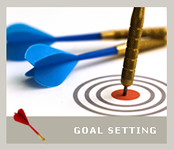
Coaching Clinic 33
Posted: 24.04.14 in Coaching Clinic Blog category
Phil Taylor is a great example of how a change (or two) can initially wreck your darts game!
* This article was written a month or so ago when Phil Taylor was struggling to find his A game after losing a lot of weight and switching darts.*
Love him or loathe him Phil Taylor is the greatest dart player ever to step up to the oche. But not at the moment! So what has caused his problems and how can understanding why he is having issues help dart players of all standards?
The two most popular theories (and I believe they are valid) are that Phil, it has been reported, has lost 4 stone in weight. This will affect the bio-mechanics of his throw, his arm is lighter and he needs to make adjustments for this. His centre of gravity would have shifted too, so again adjustments are needed to his posture and even maybe his oche position.
He has some rather nice shiny Target darts too! The Power elected to secure his financial future by switching darts suppliers although this has also contributed to his darting downfall. Taylor’s technique developed in unison with his Unicorn darts, they were a perfect partnership!
The third part of the puzzle is the most interesting bit. “It’s in his head” now is another theory that has been used to explain the diminishing power of Phil Taylor and this reminded me of a section in a book called Bounce.
Matthew Syed (the author) describes how when learning to master a sport your brain has two systems. One system is used as you try to master whatever technique you are trying to master, darts in our case of course. The second system kicks in when you throw a dart (with a near to perfect technique) without having to think about it.
Remember how you drove a car when you were learning and first on the road? Every action needed thought and if you were distracted in any way the gears would crunch! Compare that to now. You complete journeys and reach your destination and you often have no memory of changing gear, negotiating roundabouts or other road users! It is automatic.
Using Syed’s theory, what if Phil is now resorting to playing as he did when he first took up the sport of darts? The changes have, in his mind, sent him back to “over-thinking” and not playing automatically.
There are a number of lessons we can take from this. The first one is patience. If like Taylor you change things, then you have to give time to the changes so they can bed in and become automatic.
I would suggest also giving a lot of thought to a change of darts. You may like the look of what is on the other side of the river but it may be a rough journey getting across! If you truly believe a change will help, factor in that there will be a price to pay.
The last thing is what sports stars are advised to do when they go through a technique crisis and struggle to replicate the actions they have done automatically for years. They are trained to tell themselves that the contest doesn’t matter! It’s only a darts match; family, health and friends are what are important.
From the Dog and Duck to The Premier League players ambush themselves with thoughts of could, would, should have after every throw. They distract themselves from focusing on the task of winning a darts match by over analysing their every throw. Analysis of your game is crucial, but save it for your practice sessions and reflection after a match. Over thinking during the game is the opposite of what you should be doing and that is playing without fear and automatically.
Remember, it’s only a darts match!
................................................................................................................................................
TheDarts Performance Centre is a resource to assist dart players of all standards play better darts. The site is arranged as an online coaching manual. There is advice on technique, nerves, psychology, goal setting, practice games, an area to log your statistics and an interactive area where your darting questions are answered by two sports scientists, one with 30 years dart playing experience. You also get an invite to our free but exclusive members only events and acess to our members only darts coaching app! Membership is £25 per year!
Post by Category
Posts by Month
- November 2025
- October 2025
- September 2025
- August 2025
- July 2025
- June 2025
- May 2025
- April 2025
- March 2025
- February 2025
- January 2025
- December 2024
- December 2024
- November 2024
- October 2024
- September 2024
- August 2024
- July 2024
- June 2024
- May 2024
- April 2024
- March 2024
- February 2024
- January 2024
- December 2023
- December 2023
- November 2023
- October 2023
- September 2023
- August 2023
- July 2023
- June 2023
- May 2023
- April 2023
- March 2023
- February 2023
- January 2023
- December 2022
- December 2022
- November 2022
- October 2022
- September 2022
- August 2022
- July 2022
- June 2022
- May 2022
- April 2022
- March 2022
- February 2022
- January 2022
- December 2021
- December 2021
- November 2021
- October 2021
- September 2021
- August 2021
- July 2021
- June 2021
- May 2021
- April 2021
- March 2021
- February 2021
- January 2021
- December 2020
- December 2020
- November 2020
- October 2020
- September 2020
- August 2020
- July 2020
- June 2020
- May 2020
- April 2020
- March 2020
- February 2020
- January 2020
- December 2019
- December 2019
- November 2019
- October 2019
- September 2019
- August 2019
- July 2019
- June 2019
- May 2019
- April 2019
- March 2019
- February 2019
- January 2019
- December 2018
- December 2018
- November 2018
- October 2018
- September 2018
- August 2018
- July 2018
- June 2018
- May 2018
- April 2018
- March 2018
- February 2018
- January 2018
- December 2017
- December 2017
- November 2017
- October 2017
- September 2017
- August 2017
- July 2017
- June 2017
- May 2017
- April 2017
- March 2017
- February 2017
- January 2017
- December 2016
- December 2016
- November 2016
- October 2016
- September 2016
- August 2016
- July 2016
- June 2016
- May 2016
- April 2016
- March 2016
- February 2016
- January 2016
- December 2015
- December 2015
- November 2015
- October 2015
- September 2015
- August 2015
- July 2015
- June 2015
- May 2015
- April 2015
- March 2015
- February 2015
- January 2015
- December 2014
- December 2014
- November 2014
- October 2014
- September 2014
- August 2014
- July 2014
- June 2014
- May 2014
- April 2014
- March 2014
- February 2014
- January 2014
- December 2013
- December 2013
- November 2013
- October 2013
- September 2013
- August 2013
- July 2013
- June 2013
- May 2013
- April 2013
- March 2013
- February 2013
- January 2013
- December 2012
- December 2012
- November 2012
- October 2012
- September 2012
- August 2012
- July 2012
- June 2012
- May 2012
- April 2012
- March 2012
- February 2012
- January 2012
- December 2011
- December 2011
- November 2011
- October 2011
- September 2011
- August 2011
- July 2011
- June 2011
- May 2011
- April 2011
- March 2011
- February 2011
- January 2011
- December 2010
- December 2010
- November 2010
Main Index








.jpg)

